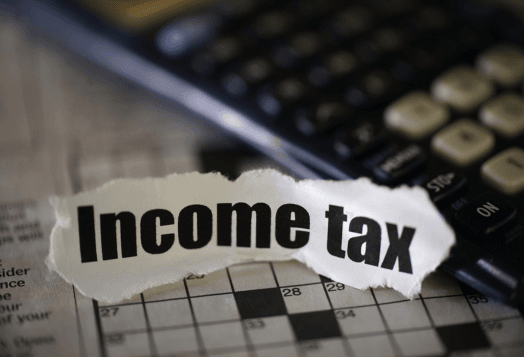Received a dreaded income tax notice? Don’t panic just yet. It’s not always a red flag; it might just be the taxman asking for a small correction. A notice under 139 (9) of the Income Tax Act doesn’t mean trouble, but it does call for quick thinking. Decode the message, stay sharp, and turn that envelope of anxiety into a smooth resolution.

What is an Income Tax Notice?
You've filed your taxes, breathed a sigh of relief, and then a letter from the Income Tax Department lands in your inbox. That is an income tax notice.
It’s a formal communication issued when there’s a discrepancy or query related to your income tax filing. The reasons can range from tax discrepancies and missing documentation to non-filing or mismatches in your declared income, which could escalate to serious actions like income tax raids.
The golden rule? Don’t ignore it. These notices are your chance to clarify and correct any tax-related issues.
Types of Income Tax Notices Under Section 139 (9) of the Income Tax Act
Section 139 (9) of the Income Tax Act is a crucial clause every taxpayer should be aware of. When your tax return is considered defective, a notice is issued, giving you a window to amend the errors. A defective return notice typically flags:
Mismatched income and tax details
Missing essential fields in the return
Incorrect or absent documentation
This income tax notice of assessment is not a penalty; it’s a heads-up. The Income Tax Department is essentially giving you a chance to fix the issues before it proceeds with tax assessment notices or further action.
You’re usually given 15 days to rectify the tax filing errors and resubmit. Miss the deadline, and your return could be treated as invalid, leading to penalties or a reassessment.
How to Verify the Income Tax Notice?
Before you break into a cold sweat, verify the authenticity of the notice using tips from a beginner’s tax guide. Scam attempts do exist, and a little vigilance goes a long way.
Here’s how to verify a tax notice:
1. Verify the Authenticity:
Before responding to any income tax notice, ensure that it is genuine. The Income Tax Department issues notices through the official portal (www.incometaxindia.gov.in) and never by phone or email. Check for authenticity by looking for a reference number and the date of the notice.
2. Identify the Type of Notice:
Notices may pertain to different aspects, like assessment, defective return, missing payments, or audit. The most common notices are:
Section 142(1) – Notice for filing return (if not filed) or request for additional info/documents
Section 143(1) – Intimation of return processing (acceptance, refund, or demand)
Section 139(9) – Notice for defective return (requires rectification)
3. Check for Personal Information:
The notice should list your PAN, name, and other details correctly.

How to Respond to an Income Tax Notice?
First and foremost: do not panic. Receiving a tax notice does not mean you're in trouble.
Here's a step-by-step guide to responding:
1. Understand the Reason
Read the notice carefully to understand the reason for the communication. If it is related to Section 139(9), the notice will typically ask you to correct the defective return.
2. Respond Promptly
Once you understand the issue, take the necessary steps to rectify it. This could involve:
Filing a Revised Return: If the notice pertains to defective returns (under Section 139(9)), file a revised return with correct details.
Providing Missing Information: If the notice asks for additional documents, ensure that you provide the requested information within the stipulated time.
Too many forms, too little time? Hand it o ver to a tax professional.
3. Use the e-Filing Portal
You can respond to most notices through the Income Tax e-Filing portal (www.incometaxindiaefiling.gov.in) by logging into your account.
4. Seek Professional Help
If the issue seems complex or you are unsure how to proceed, consult a tax professional to assist you with the response.
Common Mistakes to Avoid When Responding to an Income Tax Notice

It’s easy to get flustered, but some mistakes can turn a minor issue into a major one:
Ignoring the Notice: One of the biggest mistakes taxpayers make is ignoring a tax notice. Failing to respond within the specified time could result in penalties or legal action.
Delaying the Response: Don’t delay the response, as this can lead to additional scrutiny or fines. Always address the notice as soon as possible.
Incorrect or Incomplete Response: Ensure that you provide complete and correct information. Sending incomplete responses can further complicate the process.
Misunderstanding the Notice: Carefully read the notice to ensure that you understand the issue being raised. Misinterpreting the notice can lead to mistakes in your response.
Stay Calm, Stay Compliant
An income tax notice doesn’t have to send shivers down your spine. It might be a simple nudge from the Income Tax Department, a reminder to correct a detail, submit missing documents, or clarify a figure. Ignoring it, however, is not an option.
By verifying the notice, understanding its purpose, be it a defective return or a tax notice of assessment, and responding through the official e-Filing portal, you protect yourself from penalties and unnecessary stress. With the right response guided by expert tax planners, even the most daunting tax query becomes just another box ticked on your financial to-do list.
Disclaimer: The information provided is intended for general informational purposes only. It is not a substitute for professional advice or guidance. For personalised recommendations or specific concerns, please consult a certified professional.




